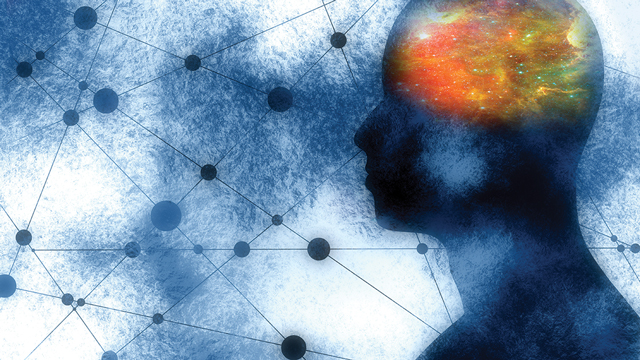When you hear the term mental illness, do you picture an adult who is dangerous, unpredictable, or scary? Do you picture a child who is out of control? We need to work on changing that.
Often, the phrase mental illness carries with it stigma and harsh imagery. Children get labeled as bad kids. These negative associations are based on misunderstanding. Misconceptions can lead to suffering, prejudice, and discrimination for an individual as well as for their family members.
Mental health is discussed and treated differently from other health conditions. When a child is recovering from tonsil surgery or a broken leg, we may think to take food to the family, deliver a small recovery gift, or offer other gestures of support. This may not happen for families facing mental health challenges. Some may even shrink away, as if afraid that mental illness might be contagious or threatening. Many times, we don’t know how to behave so we avoid the situation.
Making a Cancer Comparison
In the 1980s, cancer researchers began running group therapy sessions for breast cancer patients. Before that time, cancer was considered a bad word, whispered in corners and carrying a tremendous stigma. But in that study, researchers found that for cancer patients who had training and support and could talk about their diagnosis and treatment, it made
a huge difference. Patients lived an average of eighteen months longer, and they were healthier overall. It was clear that bringing these patients out of the shadows and acknowledging their health conditions and challenges were positive steps in their recovery journey.
Now we fly flags of cancer awareness, wear pink during the month of October, talk about screenings over coffee with friends, and reach out to loved ones going through treatments. These open conversations about cancer inspire young people to go into medical and science professions to innovate new treatments and advance the science that will save lives. By simply acknowledging and talking about it, we are all, collectively, making a difference in the health and happiness of patients and families dealing with cancer diagnoses.
Mental illness hasn’t had that moment, but there’s no time like the present. Being comfortable as a society recognizing and discussing mental health is essential for raising awareness and developing empathy for adults and children with mental illness. Further, we have the potential to inspire young scientists and future health professionals to address the many facets of mental health and improve the quality of life for us all.
Mysterious Mental Illness
The brain is fascinatingly complex, and we know relatively little about how it works. Mystery shrouds our understanding of our psychological experience. As scientists learn more, they are beginning to understand genetic, biological, and environmental influences on everything from addiction to autism to Alzheimer’s to anxiety. These are conditions
programmed into the genetic codes of our bodies and triggered by any number of factors. Discoveries are leading us closer to a better understanding of mental health and medical treatments that can be better integrated with whole-body wellness.
The intersection of neuroscience, psychology, biology, and medicine is revealing that the many mental health conditions we’ve relegated to the shadows are part of what it means to be human. They aren’t good or bad, they just are. They also don’t define the person. They are just one of many parts that make up the people who are in our families and communities. And, whether we realize it or not, they touch almost everyone in some way, shape, or form.
In the field of mental illness, there are often more questions than answers. Which disorders are more common in which populations? How should parents best help children with a mental illness? How do we draw a line between a healthy behavior and a disorder or disease? Is there such a thing as “normal,” or like most things, are there a variety of shades on a spectrum?
Exploring the Mysteries
While we don’t understand mental health as much as we’d like, and our definitions and distinctions have changed over the past few decades, here’s what we do know now:
• Mental illness is more common than heart disease, diabetes, or cancer.
• Of the ten leading causes of disability, four are due to mental illness.
• The National Alliance on Mental Illness of Virginia estimates there are 102,000 children and adolescents in our state who have a serious emotional disturbance.
• Half of all mental illness starts before the age of fourteen.
• Even before the pandemic, depression and anxiety were rising steeply, especially among younger populations.
Changing the Mindset
How can we help end the stigma associated with mental illness while building empathy, respect, and acceptance? We can talk about mental health. Make the content accessible for all ages and encourage discussions about the importance of mental health as it relates to overall wellness. Provide facts and information – not perceptions and beliefs – when talking to our friends, partners, children, parents, siblings, and neighbors. Acknowledging the science of mental health is an integral part of those conversations.
“Mental Health: Mind Matters,” an exhibition currently at the Science Museum of Virginia, explores the lived experiences, the history, and the treatments of some mental illnesses with the goal of improved understanding of mental health challenges. Exhibits like this at area museums offer a safe space for important and evidence-based conversations about personal, social, and economic issues. The exhibition, which is on display through August, is designed to inspire future scientists and health professionals to explore the far-reaching impacts of mental illness, and most importantly, to make it okay to talk about mental health.




